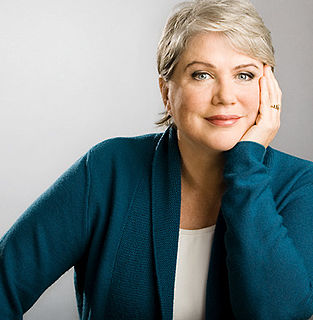A Quote by Dennis Prager
Virtually every agnostic lives like an atheist, living completely irreligious lives
Related Quotes
I am an atheist. There, I said it. Are you happy, all you atheists out there who have remonstrated with me for adopting the agnostic moniker? If "atheist" means someone who does not believe in God, then an atheist is what I am. But I detest all such labels. Call me what you like - humanist, secular humanist, agnostic, nonbeliever, nontheist, freethinker, heretic, or even bright. I prefer skeptic.
According to energy medicine, we are all living history books. Our bodies contain our histories- every chapter, line and verse of every event and relationship in our lives. As our lives unfold, our biological health becomes a living, breathing biographical statement that conveys our strengths, weaknesses, hopes and fears.
An atheist, like a Christian, holds that we can know whether or not there is a God. The Christian holds that we can know there is a God; the atheist, that we can know there is not. The Agnostic suspends judgment, saying that there are not sufficient grounds either for affirmation or for denial. At the same time, an Agnostic may hold that the existence of God, though not impossible, is very improbable; he may even hold it so improbable that it is not worth considering in practice. In that case, he is not far removed from atheism.
I just became a stronger agnostic, and then I started to realize that everyone who was saying they were agnostic really hadn't thought about it that much. Still, I went with agnosticism for a long, long time because I just hated to say I was an atheist -- being an atheist seemed so rigid. But the more I became comfortable with the word, and the more I read, it started to stick.
Children learn what they live.
If a child lives with criticism... he learns to condemn.
If he lives with hostility... he learns to fight.
If he lives with ridicule... he learns to be shy.
If he lives with shame... he learns to be guilty.
If he lives with tolerance... he learns confidence.
If he lives with praise... he learns to appreciate.
If he lives with fairness... he learns about justice
Today I am amazed at the things our children have done and their wide range of interests. They are all living their lives and not the ones I would have planned for them. But I have learned that their lives are theirs, not mine, and in living their own lives they have given me experiences and an education I would never have had if I'd been fool enough to make them do what I thought they should do.
If I were not an atheist, I would believe in a God who would choose to save people on the basis of the totality of their lives and not the pattern of their words. I think he would prefer an honest and righteous atheist to a TV preacher whose every word is God, God, God and whose every deed is foul, foul, foul.
People are invariably surprised to hear me say I am both an atheist and an agnostic, as if this somehow weakens my certainty. I usually reply with a question like, “Well, are you a Republican or an American?” The two words serve different concepts and are not mutually exclusive. Agnosticism addresses knowledge; atheism addresses belief. The agnostic says, “I don't have a knowledge that God exists.” The atheist says, “I don't have a belief that God exists.” You can say both things at the same time. Some agnostics are atheistic and some are theistic.

































